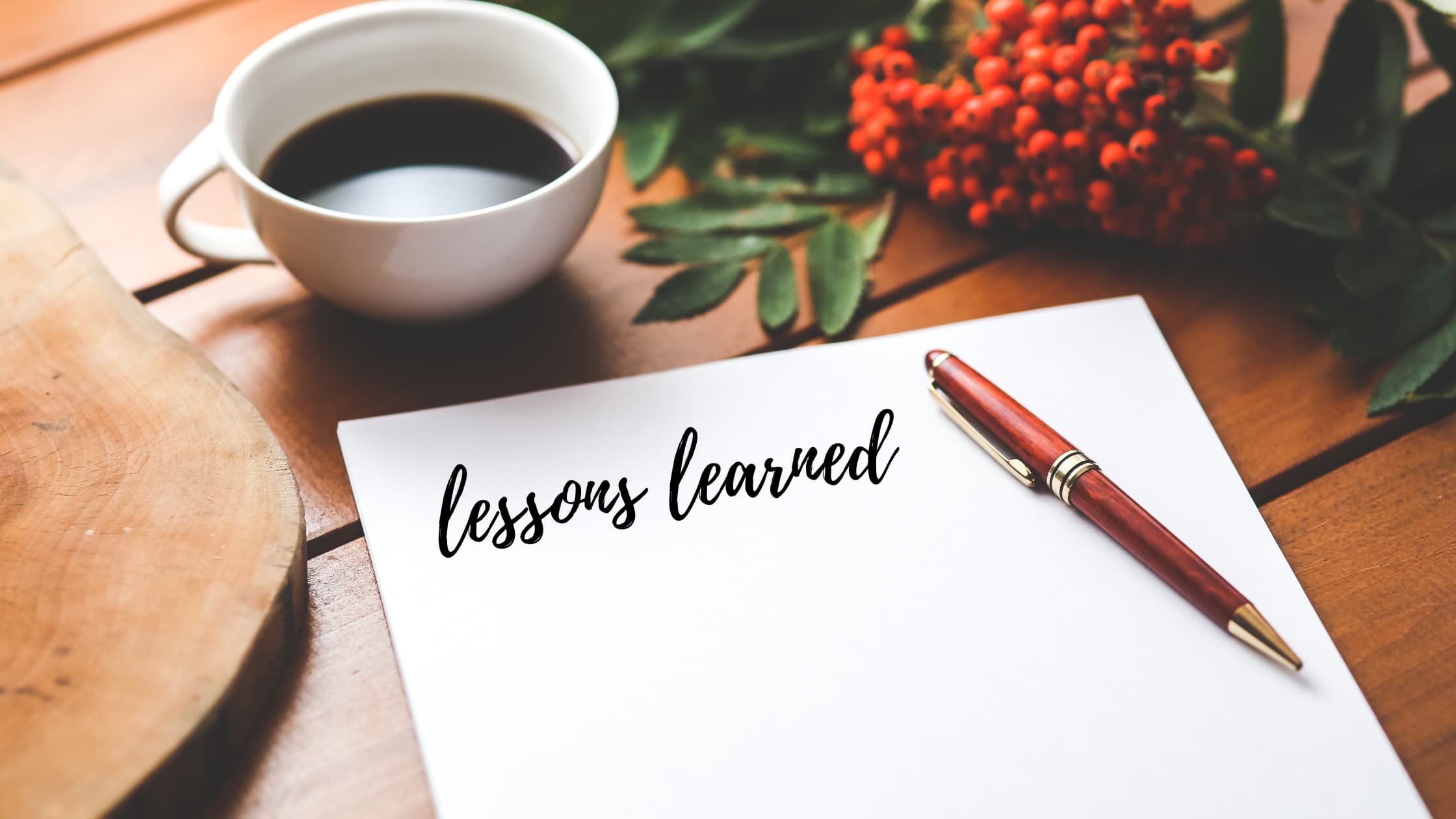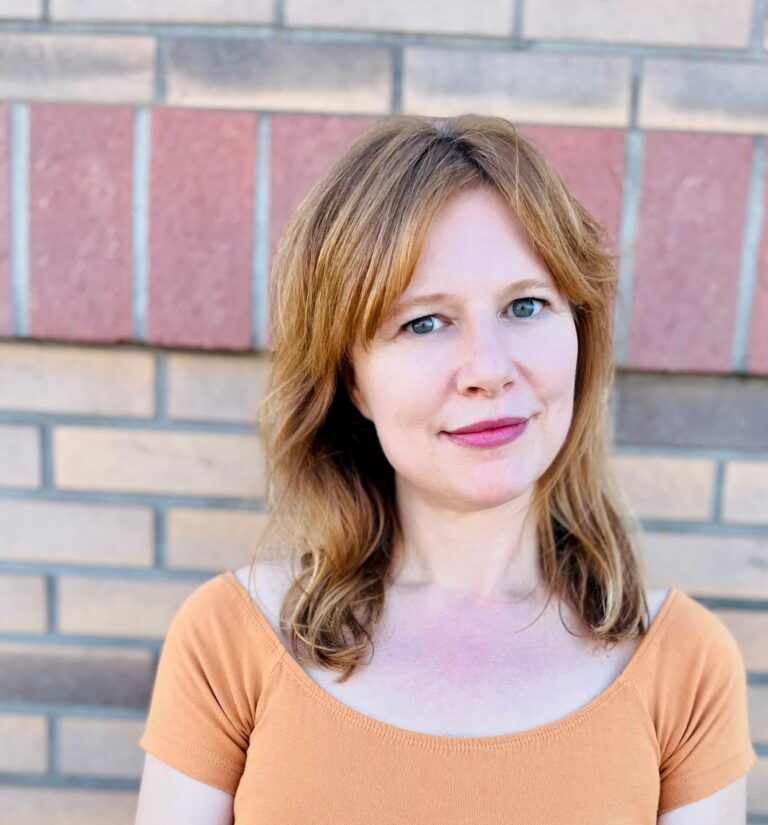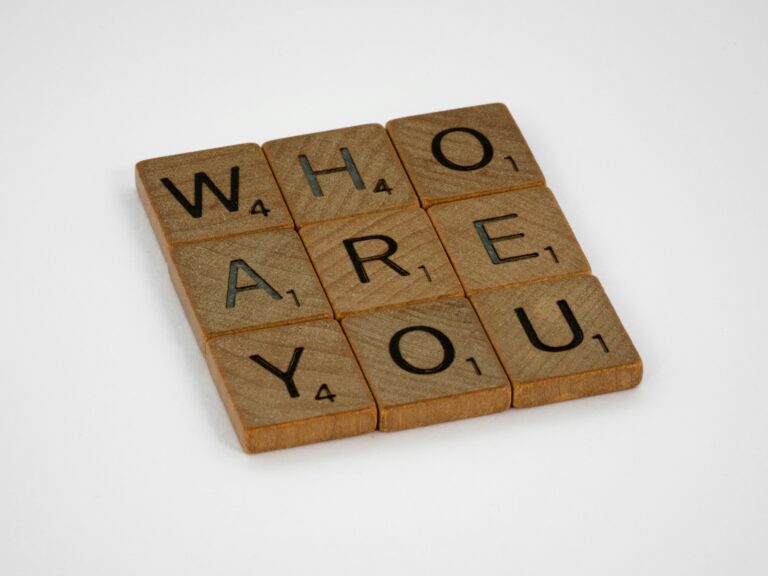Coping Lessons Learned From Early Widowhood
When you’re newly widowed, it’s hard to believe you’ll ever be able to cope with your profound loss.
It helps to hear about how others made it through those harrowing first few months so you can explore different ways of healing and learn from other experiences.
On this podcast episode we talk about the individuals and resources that played a crucial role in our healing process after losing our spouses. Join us we share our personal journeys and shed light on the individuals and tools that played a pivotal role in our healing process including:
- Journaling (lots and lots of journals)
- Being with other widows who “get it” – having a widow buddy
- A special book and guide for young widows
- And much more!
Even the smallest nuggets of wisdom can be super impactful. We hope you glean a few of those nuggets from our coping lessons learned from early widowhood.
Listen to the Full Episode
Connect With Us
- Are you searching for emotional support, practical advice, and guidance on navigating widowhood? Join us in the Widow Squad membership.
- Follow us on Instagram and subscribe to our YouTube channel.
- Get all the widow wisdom you never knew you needed including exclusive content sent right to your email Inbox. Sign up here.
- Join our private Facebook group here.
Episode Transcript
Jen: Welcome back to the Widow Squad Podcast. Today we are talking about a topic that comes up a lot in the Widow Squad. And this is something or someone who was kind of pivotal in your healing process. In that first few months of dealing with loss, was there something or someone that really stuck out with you, that helped you, held your hand, helped you walk this path? I always like to ask this question because I can always learn something from everyone, right? And any little bits and pieces of information that we can get might really change somebody’s life. Anybody who’s listening today. So I thought this was really important.
So Melissa, I’ll ask you first, what was something or someone that really helped you during those first few months?
Navigating the First Months of Loss: How a Book Became a Lifeline
Melissa: Yeah, so those first few months were I was in shock and I didn’t really know I was in shock. I didn’t really think of it that way, but I was just not really quite believing that Dave died so suddenly.
I really wasn’t feeling my feelings very much. I was very practical about going about the business of widowhood. We didn’t have a will, so I drew up a will so that I had folks lined up to take care of my kids if something happened to me. Had to open up probate. ALL THE BUSINESS. And I’m very good at that. I’m very good at doing business things. So I focused my mind on all the business stuff.
Then it took several months for it to really kind of sink in that Dave actually died and he was not on a fishing trip and was not going to open the door and come in and like, “hey, sorry I’ve been gone so long.” I mean, I saw him in the funeral home, so I knew, my mind knew. But it was also protecting me, I think, from the trauma of losing him.
So, again, it’s going about the business those first few months. I was looking for books or something, anything like homework. I very much like homework. I wanted to move through this and get it done and get an A+ and not have to think about it. Like, I can do widowhood. I’m done. I want the pain to go away. I’m out. Let’s get this guidebook. That’ll do it for me.
I was like googling a lot. And I lived in a smaller town and the bookstore that they had did not have a huge grief section. This was twelve years ago. I think we’re talking about grief more these days. So there’s more books, but at the time there wasn’t a ton. And I stumbled upon this book called Widows Wear Stilettos. And it’s a practical and emotional guide for the young widow. And I was 44. I consider that young, and I love this book. It’s by Carole Brody Fleet. She wrote this story of being a young widow raising her daughter after the death of her husband. But it had homework and it had journal prompts and things that you could write in the book. And I’m like, I love this. And it was almost like she gave in these couple of chapters in here, there’s a few chapters like, she gave me the permission to cry and to be angry.
I really wanted to have this concept of, is this normal? Is what I’m feeling normal? Normal, normal, normal. And I couldn’t quite get to the point where it’s like, well, it’s normal for me. And this book was just like my bible.
I was actually able to talk with her in person. On my previous podcast, the Filled With Gold Widow podcast, I interviewed her and she’s fabulous. She really turned things around for me. Like I said, it just gave me the permission to feel like everything I was feeling was normal. Everything I was doing was normal. The book talked about wedding rings and we had a previous episode on that. It talked about dating. I wasn’t ready to date at the time. But I really felt like it gave me some hope because somebody else was moving through a similar experience that I was moving through. So, yeah. Widows Wear Stilettos: A Practical and Emotional Guide for the Young Widow. Highly recommended. Carole Brody Fleet.
Jen: What a full circle moment that you got to talk to her.
Melissa: Ah, yeah, I’ve got goosebumps now.
Yeah. She was pivotal, and so I just wanted her to know how much her book helped me. And then in turn, it helped my kids and in turn it helped my friends because I became not a better person, but I just became a different person, more comfortable, more willing to move forward to kind of process my emotions not kind of, but I did. It was like, okay, business brain. That’s great. Thanks for taking care of all that stuff. But I really need to process what happened and do it in a healthy way. So yeah, I highly recommend it.
Jen: And we do look for a blueprint, right? We want the guidebook. We want to know what are the steps.
Melissa: Yeah, if it says guide, I’m buying it. Because it’s like, okay, that’s so funny.
Jen: I know I need a guide. I need you to tell me what to do so I can get there and get it over with.
Melissa: That’s how I felt, too. Absolutely.
How about you, Kim?
Was there something that really helped you in that first year?
The Need for Understanding: Why Being with Fellow Widows Makes a Difference
Kim: Something and someone. Both, actually.
Right after my husband died, we joined a grief support group. There was a local grief support group for families, and it was for anybody who was grieving, not just widows with kids. But I was 44 years old, too, so I was young, my kids were young, and I felt like I needed something to do with them because they’re boys and boys don’t talk or share feelings. I thought if there was something we could do together as a family it would be beneficial. And it was. It was a great support group, and we were there for almost two years.
But I met someone in the support group that was instrumental, I think, in the beginning, to help me through. And she was divorced before her ex-spouse died. So, she wasn’t a widow in the sense of us being married and our spouse died. She was dealing with grief on a different level. But we met in the support group, and she had a young son, too. And so she was my solo mom friend who was dealing with very similar things, only our circumstances were different because she was divorced. Okay, so whatever. Anyway, we’re very much alike. Actually. We’re still friends to this day. We’re going on a little mini retreat with each other this weekend.
So in the beginning we had the same questions. What am I supposed to feel? How do I feel it? I’m angry, I’m anxious. I’m all the things. Well, she felt those things, too. So we would go to the grief support group together. And after it ended, we would just be walking out to our cars as if we were going to say goodbye and stand and talk in the parking lot for 60, sometimes 90 minutes. The boys are running around because she had a son, too, who was, I think, a year or two older than my oldest.
But the boys are running around playing catch or whatever they’re doing. We’re talking. The sun would go down, the church lights would come on, and some of the staff would come out and say, “are you okay?” We were just talking about some serious stuff. Maybe it wasn’t even serious stuff, maybe it was just talking to hear ourselves talk, but just that camaraderie was really important.
In the grief support group, there were children as well. So they would section the kids off by age and go do an activity in different rooms. And then the adults would all go into their own room. So, because these were grievers of all kinds, we had some widows, we had some who were not widows. And so we would look at each other when the family would come in whose 92-year-old dad died. Now I’m not taking away anybody’s grief, okay? So hopefully I don’t say it the wrong way, but I would sit in this group and think um, circle of life, okay? Like, I’m sure that you’re grieving and sad, but he’s 92. So my friend and I would look at each other like, are you freaking kidding me right now? I am in the worst place of my entire existence on Earth. And my children and I are desperately trying to, you know, find some semblance of normalcy. And these people were sad because their 92-year-old dad died. I know death is hard for everybody. I get it. But then I felt bad because I was, like, very angry.
So we would just make jokes and kind of look at each other. We would have that “knowing” with each other. That was like, whatever. I don’teven know what to say about that. So we left the group after two years but we still talk about it. She’s just the kind of friend who knows what you’re saying before you even finish your sentence kind of thing. And the kind that doesn’t judge you for saying the things that you say. We’re the people that call each other when we need to process. We still do that. So I will text her and say I need to process something. Are you free? Absolutely. Call me at this time. And then she’ll text me, I need to process. So we are each other’s processors. We process.
Melissa: That is so nice.
Kim: Yes, it is. There’s no judgment. But the solo mom part? C’mon now. That was huge. It was huge. So everything that her son’s gone through, that my kids have gone through, we absolutely understand and know and never once have ever said to each other, “you shouldn’t be feeling this way” or “you should have done that,” or whatever.
We beat ourselves up enough. I mean, we’re similar in a lot of ways. And so we beat ourselves up internally enough times that I know if I need a cheerleader in my corner, I can call her, and vice versa. So, yeah, we’re still friends to this day. So I think that was the person and thing. The grief support group was the thing. I only wish it was a grief support group for widows like the widow squad. We’re widowed, we’ve lost our spouse or partner. That is how we all have a similar experience. But if your grandfather died or your father or mother or dog, it’s not the same thing.
Melissa: Yeah. It’s not like you’ve lost your life partner, you were planning a future together. With that person and raising kids or not, but you were planning your future together.
Kim: Right.
Melissa: And yeah, I think it’s really important if you’re widowed to be with widowed people.
Kim: You need to be with widows. That’s why I think we were so excited about starting the widow squad. We have a knowing again with each other on a level that the mere mortals will never understand. Because bless them, they don’t have to go through it. Right?
To say I know how you’re feeling when your 92-year-old dad died? Uh, you don’t know how I’m feeling, so please leave the room. Please leave the room. Leave the table.
Jen: I had a similar experience, too. Shortly after, I was trying to find a grief group or some grief support group, and I found something. But when I got there, the only other person in the room was this teenage boy who had lost his grandmother and bless him. I mean, he was just sitting there crying and upset. But as I’m filling out the form to go into this grief group, you had to write down just some background information, and I just very clearly remember it’s, like, the reason why you’re here. My husband was murdered. Those are the words that I wrote on the paper. Could not believe I was writing those words in the first place. And then I go into the room, and it’s a teenage boy crying about his grandmother.
I’m, like we’re not the same. It’s not the same.
Melissa: I have a similar story too. I haven’t thought about this in years. It was maybe like, a year and a half after Dave died, and I did this yoga grief retreat. It was, like, a couple of hours in an evening and so you’re all sitting around the circle and you’re sharing while you’re there. And I was the only widow there. Other people had significant loss like children or parents. The person before me had a pet loss. And I love pets. I lost my dog Buxton last year. But I was, like, self-conscious because I’m going next. I’m going to blow this out of the water.
You know, like, I kind of wanted to diminish my experience and say, like, well no, next, because I didn’t want to have this person feel bad.
That was, like, weird.
You know what I mean? It’s like, I’m sorry. Yeah, I know you’re grieving. Here’s my situation. And I just kind of just didn’t want to say anything, really, because I’m like, they’re going to feel really bad now. I had to think about, like, okay, I’ll just like I said a little bit of something. Let’s move on to yoga.
Well, how about you Jen?
Journaling Through Grief: Unleashing Emotions and Finding Comfort
Jen: So when I think back to those first few months and the support that I was getting, I feel like I didn’t know how to handle myself, and I didn’t know how to handle all of the emotions and the anxiety that I was feeling and all of this that was built up inside of me.
I didn’t really have a whole lot of resources to know what to do with myself. So I was just kind of going with my gut and thinking what do I need to do? God, what do I need to do to feel better?
The something for me was journaling. It was writing it all out, and nobody back then was telling me to do these things, like, oh, try this, try this. There was nothing like that. I literally had a blank journal. This is it. Grab a blank piece of paper and go to town. And that was my outlet. It really was. I can’t even tell you how many journals I filled up, and I mean, probably ten + page to page to page to page build up.
There is a quote by William Shakespeare, super short, but man, it’s to the point. And it says, “give sorrow words.” That was it for me. I needed to do it. There were several ways that I was journaling, but for me to write out at first, just my day to day and talking to Brent and telling him what we were doing, this is what we’re up to. Not that I didn’t think that he was already there watching, he was already with us, but I felt like if I could get that out, that was just a connection to him and a way of keeping him in our lives. Right. And I felt that connection through that journal. I really did. And it’s so simple. It’s such a simple thing to do. It’s completely free. Except for your Dollar store journal. Such an easy thing, right? And yet so powerful and life changing for me that I recommend it to everybody.
Give sorrow words.
My other reason for that was the anxiety and the anger that was built up. This was a good way for me to get that out, too. Grief is energy. It’s this built up energy that we feel inside of us and we have to get it out somehow. Somehow, however that’s going to come out, whether you turn to exercise or something, another healthy coping mechanism that you do, it’s energy and it needs to be out of you.
Melissa: Getting it on paper. It’ out of here and getting the paper.
Jen: I’ve got to get the grief out of here. I have to get the anxiety out of my heart. I have to get this out of me. And for me, my journal was life saving.
Kim: Well, I have a question about the journal. I do the same thing, by the way. I get the same college ruled notebooks and I buy them when all the school supplies go on sale. Yes, they used to be twenty cents apiece, but that’s gone up now. But anyway, I just stock up. So my question is, do you keep your journals? Do you keep all of them?
Jen: Yes.
Melissa: Do you reread them? Do you read through them?
Jen: I do sometimes. I have the ones from the early days and when I go back and look through those, it is nothing but hurt. It’s pain, it’s sadness, it is scribbled like that. It’s just like I got to get it out. And then it eased up over time. But yes, I do, I keep them all.
Kim: I love that because I can write on my computer and I can lock it down with a code that nobody else knows, okay? But I don’t keep what I write out on paper. And so I’ve had other people ask me about journaling too, because I’m a bigger proponent of journaling and I highly recommend it. And people will say, “well, yeah, but I don’t really want anybody else to read what I’m writing.” I’m like, “I shred my papers, I don’t keep them. I don’t want anybody to read what I’m writing, either.”
Because if you knew what was going on in this brain, you might have a different view of me. So I don’t really want other people reading what I’m writing. So I shred my written pages and other people who wanted to journal were like, well, can I do that too? And I’m like, “hell yeah you can. Shred your paper if you don’t want anyone reading it.” Do what you want.
I love that you can journal and keep them and reread them. I’m like, I get it out and release it and then I shred it. Unless I have it on my computer because I want to keep it. And then I lock it down.
Jen: My early journals, too, were, again, just diaries, almost just accounts of what we did that day. So for me to go back and read that, I’m like, oh, Claire and I did this on that day. I also would write down the really funny things that she would say, because she was three, so she was coming up with all kinds of hysterical stuff. So, I used to put the Claire quote of the day on top, and it would just be something so hilarious. It’s so fun for me to go back now with her and say, “oh, what was the clear quote of the day when you were four?” I did that for years. And she gets a kick out of that because I know I would never remember any of the things that she said, especially after the widow brain thing, and just forgetting everything after that. I didn’t want to forget that stuff, those little details of our day. And so it’s a really fun account of that time. Even though it was painful, there were still happy moments in there. So my journals are a mix, right?
Kim: I do have documentation of what I did with the kids, so that was a separate piece of writing. I do have those that I printed out for them in books and stuff like that. But the griefy grief? I don’t want nobody reading that. So that’s interesting how different people do things. Again, you get to decide what works for you. You do whatever works for you. Buy the pretty journals. I mean, I have had friends give me these pretty journals with beautiful leather covers, but I still go get the 20 cent college rule lined thing because I love the way my pen glides across the paper.
Jen: Uh I just love it. I know. And it’s big, so it’s enough for me to get my crazy thoughts on there, right?
Kim: And it’s lined. I don’t like writing on unlined paper because when I go off on a slant, right? And that looks bad. I’m like, why am I slanting? And my writing looks so dumb. The lined part is ideal.
Jen: I can’t write on paper that doesn’t have a line.
Melissa: So do you like, guided journals? Because I tried but I’m not someone who just journals. Mainly, I just needed a prompt. I needed something to get me going. Like, how are you feeling? Because I was just so shut off to everything. I didn’t even know what was going on in my head.
Kim: Sometimes that’s literally all you need. Because then just starts the process. The next thing you know, what did you eat today? becomes this 15 page essay.
Jen: This is what I was thinking. And then this is what I was thinking. And it just passed. Snowballing.
Melissa: Yeah. I love a good journal prompt. Yes. Uh, I need a journal prompt if I’m going to do something like that.
Jen: That was my something. And like I said, we didn’t have these resources back then. We didn’t have people telling us what to do or what to try or maybe you could turn to this. No, I was just like, I got to do something with this.
Finding Healing: The Pivotal Role of Widow-to-Widow Support
Kim: Well, the part with all of us is how young we were, too. So, again, fewer resources for us because the fact that we were younger widows was just not normal
Melissa: And still actively parenting.
Kim: And still actively parenting. It just was not normal. So to be without resources like that at such an impressionable time is really difficult. I’m forever grateful for all the widows that are stepping forward now with things and resources and sharing their stories and giving permission to be human and normal.
Melissa: Yeah, normalizing this experience. Because I didn’t know anybody. I didn’t know anybody my age who was out there, but I had no access to them.
It was 2011 when Dave died. I didn’t know anybody in my community to access, tap into, to talk to.
Kim: I think that we will probably have another episode on something like this again, because of all the different ways that different things and people or events that have helped other widows get through those dark first days.
This was really good. I’m glad we talked about this topic.
I think that was helpful.







